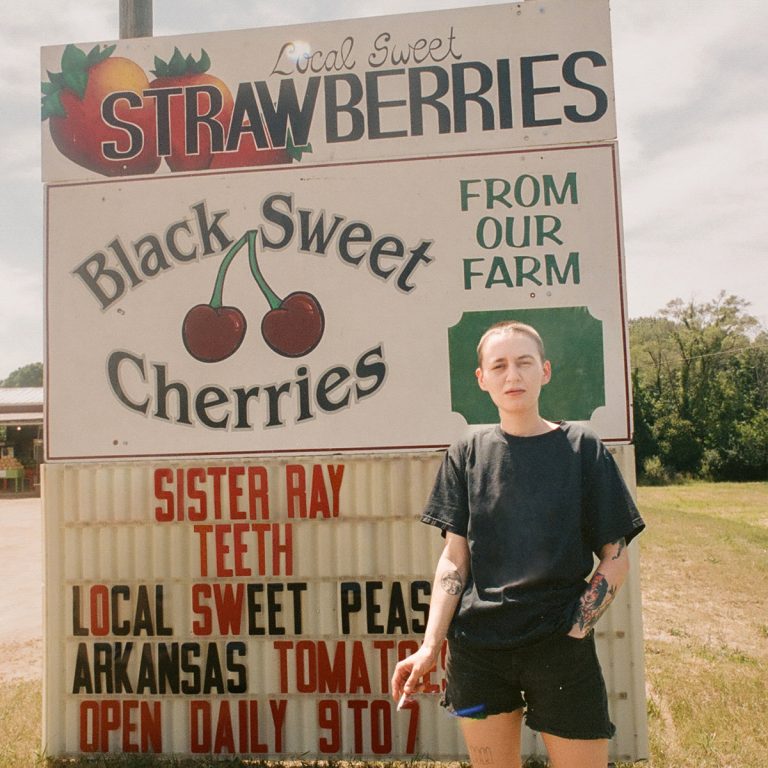“Deep in my belly I thought we’d agreed,” Sister Ray sang on “Violence”, which opened their 2022 album Communion: “No babies.” A year past that autopsy of a failed relationship, Ella Coyle struggles to sustain consciousness. The miscommunication that undermined a house of cards has transformed into a reverie-slash-hallucination on its followup EP.
Teeth raises the curtains – somewhat misleadingly – on a soft-porn set where fresh fruit is being peeled and a T-shirt gets accidentally (wink) soaked. Before long, the belly from “Violence” rumbles and is (metaphorically?) split wide open. Coyle – desperate to be lied to – begs their lover to reassure them that the deep stain on their fingers is actually just juice from berries adding wryly, “A grifter knows a grifter.” The Mazzy Star and Ethel Cain-like ambience on “Teeth” then turns to dusty Leslie cabinet on “Pressing Down”, where a daydream is broken by the sound of a dog whimpering to go outside. Coyle lies and blames their spaciness on something left hanging in conversation, thereby reviving one of Communion’s themes: we are too afraid to share all of our thoughts.
Teeth lingers on every domestic, sexual, and menial detail with such intensity that there’s little surprise that Sister Ray has trouble clinging to what’s real. The slightest pause is a breeding ground for insecurity. Guitar patterns are suspended and dangled from seventh chords and pedal notes, giving the songs an elliptical feel that takes Coyle by the arm and walks them like an invalid among their visions. As with the poor dog’s cry, Sister Ray is occasionally stirred but rarely jarred awake: subtle nuances in momentum or additional instrumentation signal emotional shifts before the lyrics can grow impenetrable.
“Pressing Down” features gauzy guitars that form a patchwork of translucent clouds, ambiguous about their capacity for storms. The guitars of the Nick Drake-inspired “All Dogs Go To Heaven” create a primrose path that culminates with Coyle walking off a logical cliff, water rushing into the ears and lungs on the closing “I Will Never Marry”. The traditional composition was originally a ballad where a woman joins her beloved – a lost sailor – in a watery grave, but was transformed into a jilted lover’s lament by Linda Ronstadt and her 70s contemporaries. Sister Ray adopts this version, morbidly musing that this seabed asylum might be the only shelter from their mind.

